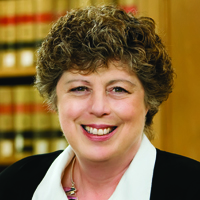The Internet brought a great democratic promise for public engagement in government affairs. It lowered the barriers to participation and gave people tools to hold their governments more accountable. Two main ideas have been guiding the discourse on e-participation. First, there is a belief that broader participation will necessarily yield better democratic results. Second, there is a belief that what prevents people from participating effectively is the lack of appropriate tools. But if you build it, who will come? What constitutes meaningful online public participation? What technical solution, psychological traits, and social processes help or hinder effective public engagement in government affairs using the Internet? How does mobilization of masses for civic protests differ from helping people take constructive part in policymaking processes? What can we learn from the successes and failures of e-participation initiatives? This track will address these and other questions exploring the gap between the promise and the reality of e-participation.
What it’s about
- Engaging public in government activity
- Rulemaking
- E-participation
- Transparency
- Community-building
- Success or failure at motivating public participation
Who it’s for
- E-government researchers
- Political scientists
- Social-media strategists
- Rulemakers and regulatory professionals
Track Chairs
 Cynthia Farina is the McRoberts Research Professor in Administration of the Law at Cornell University and a principal researcher in the Cornell e-Rulemaking Initiative (CeRI).
Cynthia Farina is the McRoberts Research Professor in Administration of the Law at Cornell University and a principal researcher in the Cornell e-Rulemaking Initiative (CeRI).
Her scholarship and teaching focuses on administrative law and electronic government, the presidency, and due process and separation of powers. Co-author of the leading casebook in administrative law, she is also a Lifetime Fellow of the Administrative Law Section of the American Bar Association and a member of the Administrative Conference of the United States. A nationally known scholar of the administrative process, Professor Farina has served as reporter on a number of national administrative law projects. Most recently, she completed the report of a blue-ribbon cross-disciplinary committee who studied the emerging federal e-rulemaking system, to make recommendations to Congress and the new Administration. Previously, as one of the reporters of the European Union Project, she assessed the EU’s use of the Internet to increase transparency of, access to, and participation in the Union’s very complex government processes. As part of the multi-disciplinary CeRI team, she works with agencies in the Departments of Transportation and Commerce on theoretical and applied research, funded by the National Science Foundation, to improve agency management of and public access to e-rulemaking.
Following her graduation summa cum laude from Boston University School of Law, Professor Farina clerked for the Hon. Raymond J. Pettine, Chief Judge of the U.S. District Court of Rhode Island, and for the Hon. Spottswood Robinson, III, Chief Judge of the U.S. Court of Appeals, D.C. Circuit. She spent three years as a litigator in private practice before she joined the Cornell Law School Faculty.
 Dmitry Epstein is the Cornell eRulemaking Initiative Postdoctoral Fellow at the Cornell Law School, where he conducts research on online policy deliberations and the link between inequalities and online civic engagement. Dmitry earned his PhD from Cornell University, where he studied the policymaking processes and the international governance of information and communication, as well as the social and political implications of information and communication technologies, specifically the practices of technology use and the politics of communication platforms. He earned his BA in Economics from Tel-Aviv University and MA in Comparative Media Studies (cum laude) from the Ben-Gurion University of the Negev.
Dmitry Epstein is the Cornell eRulemaking Initiative Postdoctoral Fellow at the Cornell Law School, where he conducts research on online policy deliberations and the link between inequalities and online civic engagement. Dmitry earned his PhD from Cornell University, where he studied the policymaking processes and the international governance of information and communication, as well as the social and political implications of information and communication technologies, specifically the practices of technology use and the politics of communication platforms. He earned his BA in Economics from Tel-Aviv University and MA in Comparative Media Studies (cum laude) from the Ben-Gurion University of the Negev.


 Cynthia Farina is the McRoberts Research Professor in Administration of the Law at Cornell University and a principal researcher in the Cornell e-Rulemaking Initiative (CeRI).
Cynthia Farina is the McRoberts Research Professor in Administration of the Law at Cornell University and a principal researcher in the Cornell e-Rulemaking Initiative (CeRI). Dmitry Epstein is the Cornell eRulemaking Initiative Postdoctoral Fellow at the Cornell Law School, where he conducts research on online policy deliberations and the link between inequalities and online civic engagement. Dmitry earned his PhD from Cornell University, where he studied the policymaking processes and the international governance of information and communication, as well as the social and political implications of information and communication technologies, specifically the practices of technology use and the politics of communication platforms. He earned his BA in Economics from Tel-Aviv University and MA in Comparative Media Studies (cum laude) from the Ben-Gurion University of the Negev.
Dmitry Epstein is the Cornell eRulemaking Initiative Postdoctoral Fellow at the Cornell Law School, where he conducts research on online policy deliberations and the link between inequalities and online civic engagement. Dmitry earned his PhD from Cornell University, where he studied the policymaking processes and the international governance of information and communication, as well as the social and political implications of information and communication technologies, specifically the practices of technology use and the politics of communication platforms. He earned his BA in Economics from Tel-Aviv University and MA in Comparative Media Studies (cum laude) from the Ben-Gurion University of the Negev.